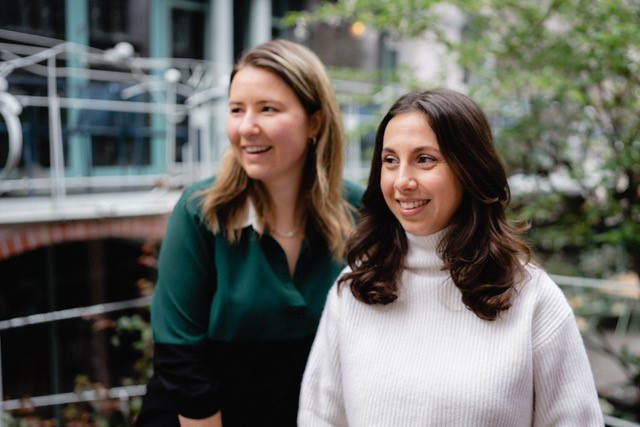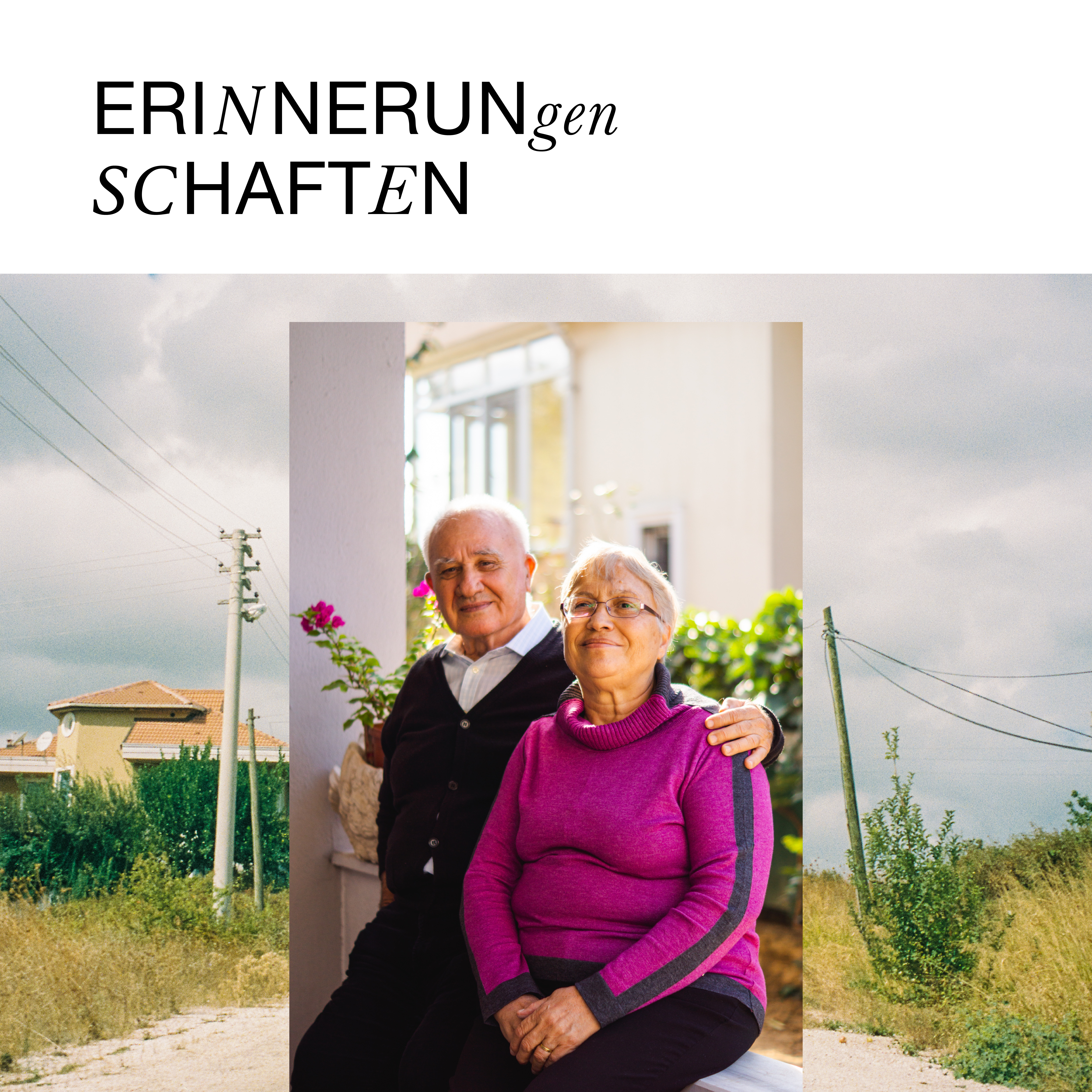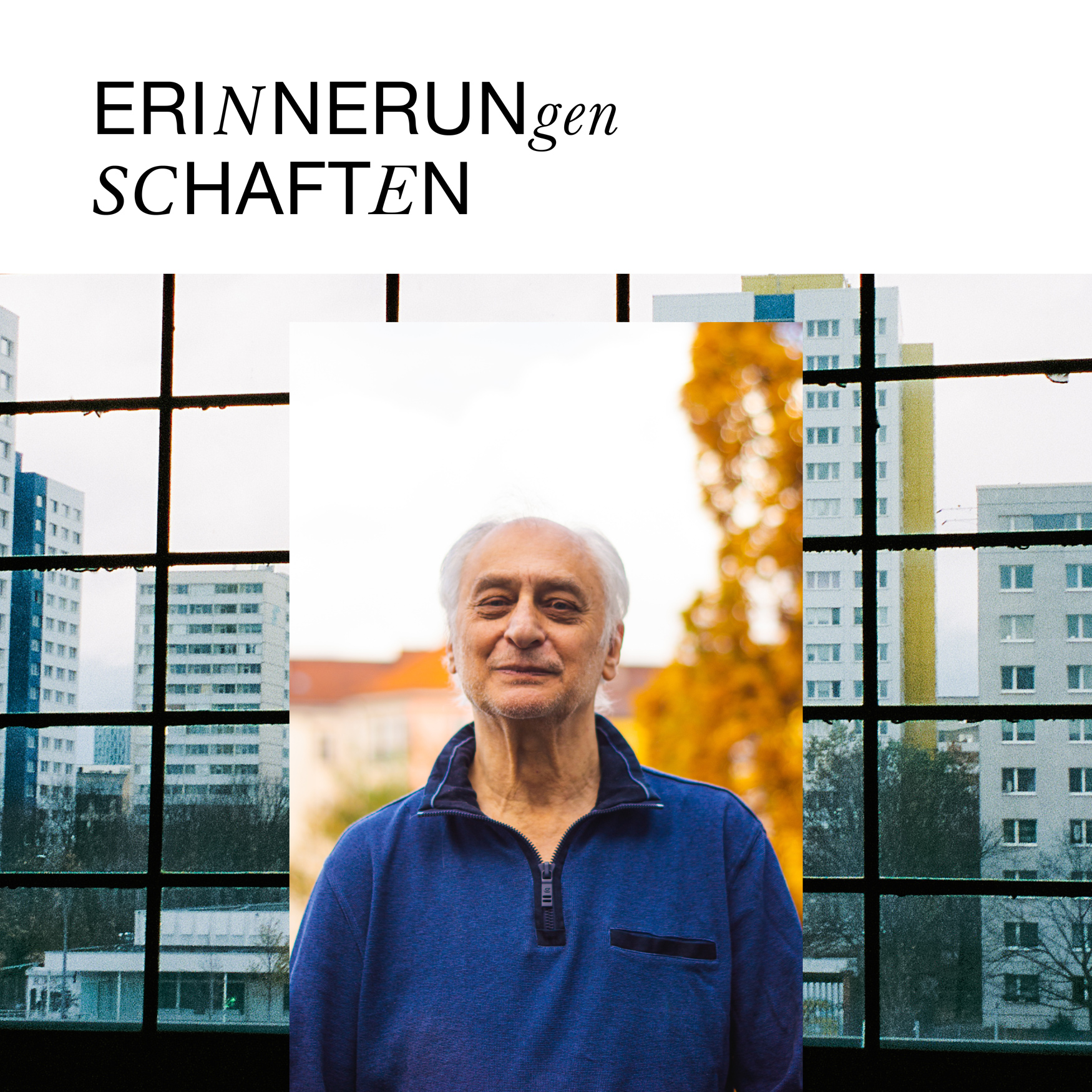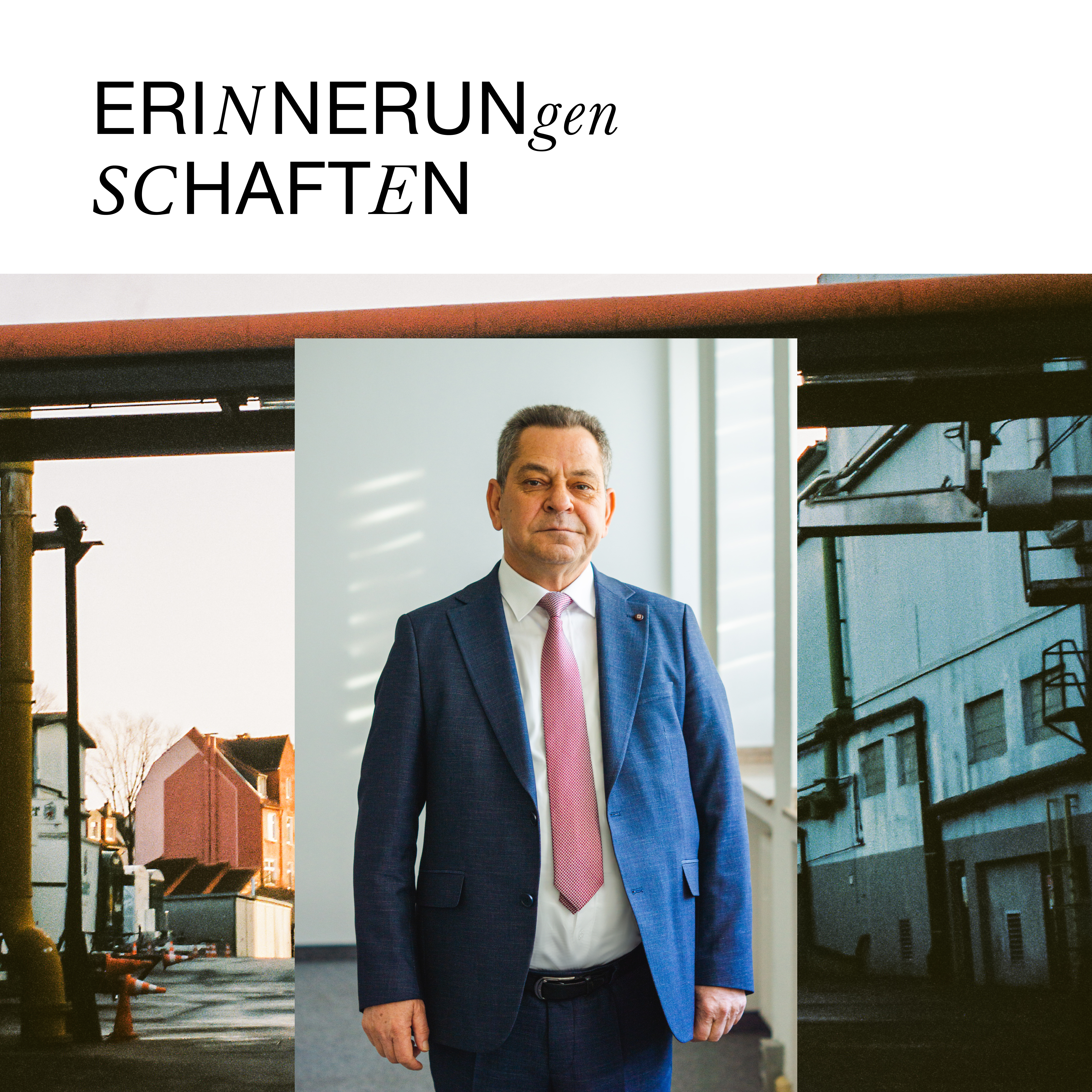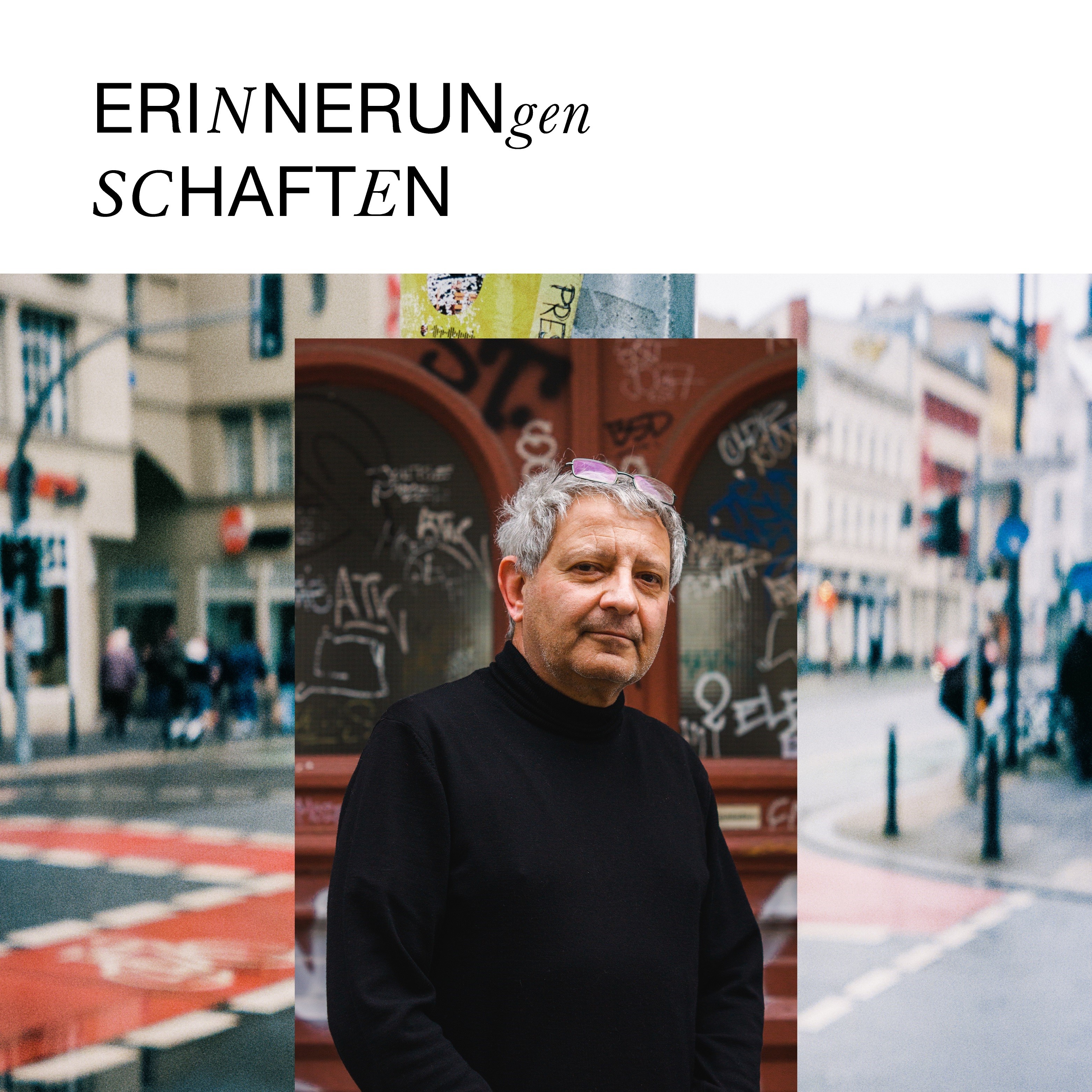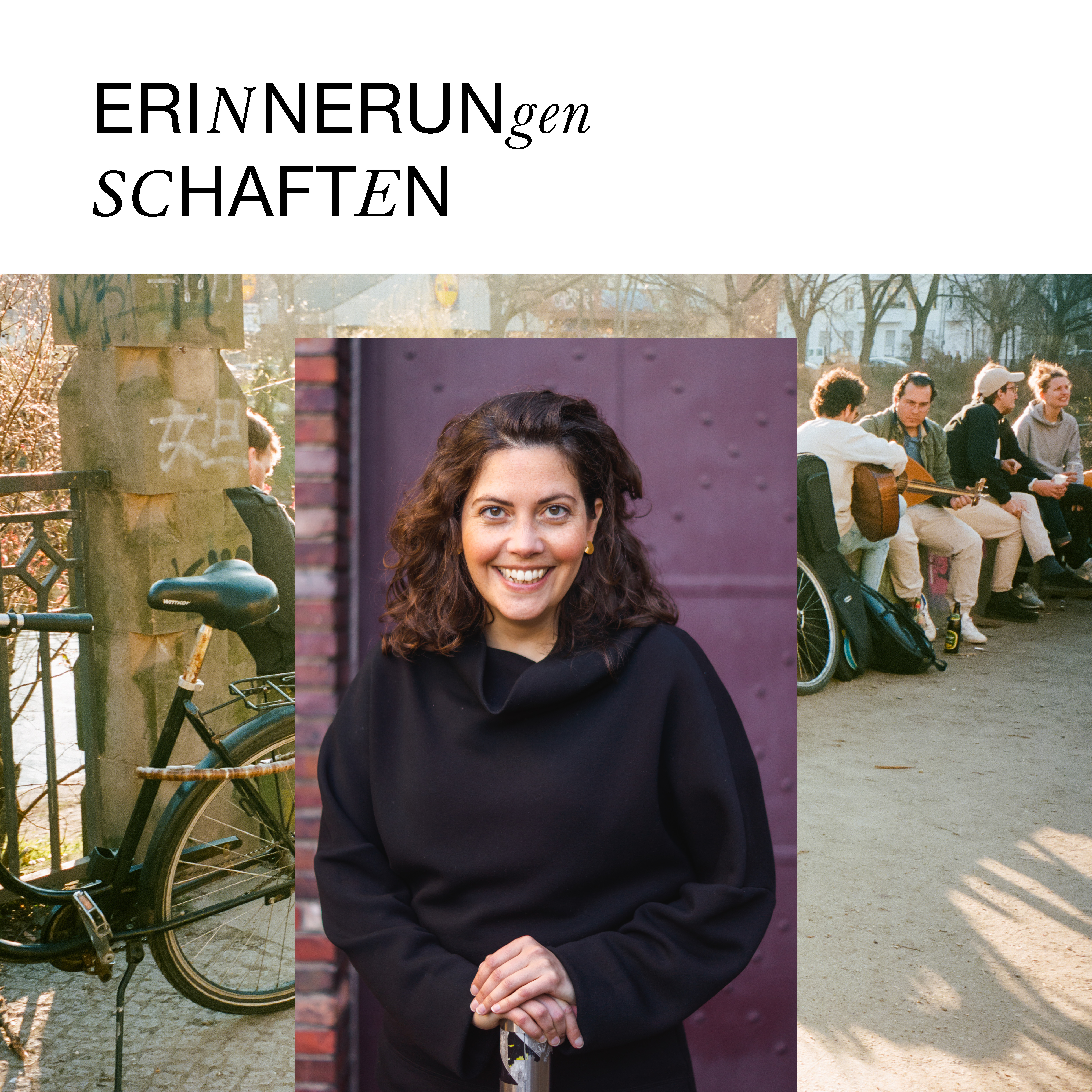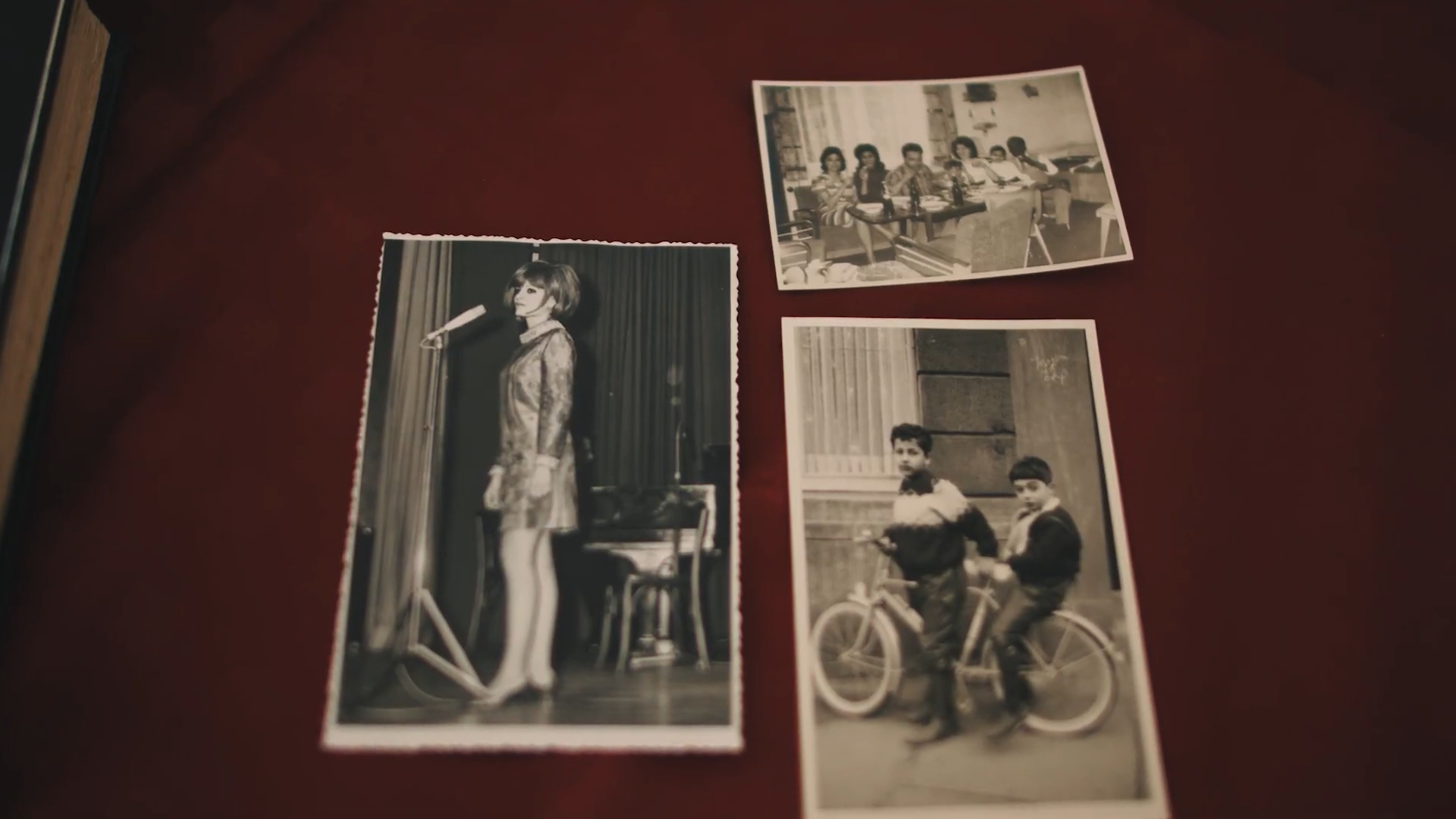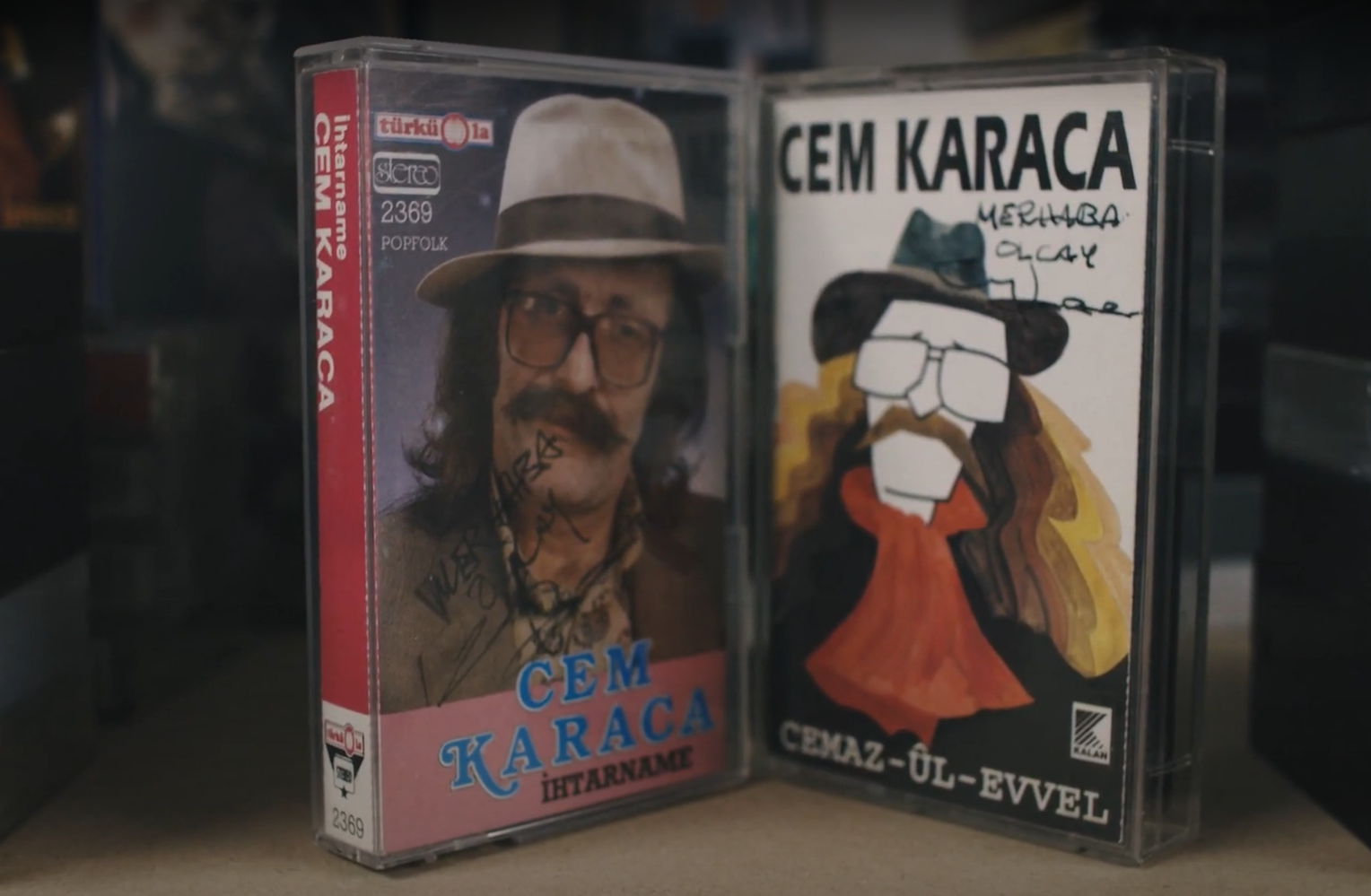en
- de
- en
Maviblau e.V. is a cultural platform that uses art and creative projects to address post-migrant issues in Germany.
Funded by KULTUR.GEMEINSCHAFTEN, "Erinnerungenschaften - der Podcast für türkisch-deutsches Erinnern" preserves post-migrant voices and allows people to speak who have experienced and shaped our common history.
Serap & Marie
Together with podcast maker Serap Yilmaz-Dreger and photographer Marie Konrad, we met to learn more about their motivations and the creation of "Erinnerungenschaften", the 7-part podcast for Turkish-German memories.
In this story "Podcasts as a place of remembrance", we take a look behind the scenes and find out what challenges were overcome and what new insights Serap and Marie have gained through their podcast guests.
Let's go back to the time before the podcast was produced: What were your motivations to start this project and how did the idea evolve in the process?
Serap
As the conceptual director of the podcast, my concern was to fill a significant gap in German remembrance culture. As a child, I watched documentaries on post-war Germany and found very similar narrative threads. Even today, a large part of migrant history is left out. I wondered how to weave this complexity of history into the narrative.
After the conceptual phase, the idea of what space we can create with a podcast and what role I take on as a moderator developed further.
In this role, I have the opportunity to emphasise the subjective form of remembering through the conversation with the guests and to create a new form of transmedial culture of remembrance in which people and their experiences and achievements are the focus. We actively decided against interviews with experts and chose the form of "oral history". In this way, we are expanding and renewing the social collective memory of German remembrance culture.
Marie
The project is a search for traces, a journey and archiving at the same time. As a white person with a non-migrant history, it was my concern to practice the greatest possible openness when it came to the visual documentation of the podcast, or the interview situation of the respective person. In this respect, my role was that of a fly on the wall, listening and observing the situation from the outside without being an active part of what was happening.
Did the process go as you envisioned it in advance? Were there any new findings or changes to the plan?
Serap
After the first episode regarding the topic of the recruitment agreement, two of my expectations were fulfilled: Firstly I wanted to take the chance on capturing the voices of people who let me in to their biographical past 60 years when their voices are still alive and can speak for themselves. Secondly there was more to tell as well about the overarching theme than only the rercruitment agreement. In the wake of the 60th anniversary, the topic was very prevalent, but what about the other times that are just as exciting and full of stories? I was particularly looking forward to the fact that we still had several episodes ahead of us, which, for example, would also illuminate the time around the fall of the Wall from a post-migrant perspective.
When we asked our interview partners, they were all interested right away. In order to find suitable people, I also wrote to professors who had conducted research and interviews for our episode on trade unions, for example. The direct support from the research community confirmed that our initial wishes to give the topic more space were right and important. So much encouragement, especially at the beginning, was very appreciative and inspiring.
Marie
The openness that the content of the interviews demands from the listeners is reflected by a curious and attentive gaze when taking photographs. The focus on details and symbolism reminds us of the individuality of each life story and the relevance of the subjective perception of the environment. Depending on who is looking at this picture, what is shown is interpreted differently and different things are associated with it. The dual sensory experience of audio and visual creates an almost immersive world around this person and story, which nevertheless leaves enough room for one's own imagination. At the same time, the images of a single personal life world create a collective feeling of recognition and empathy - a core element of remembrance culture.
How are you doing with the products? Were your expectations met? And what did the project do to you afterwards?
Serap
We experienced the medium of podcast in two very intimate ways. We literally sit in the listener's ear or are the surrounding sound in their living rooms. At the same time, the focus on oral history recordings allowed us to take a seat in the everyday living spaces of the interviewees. This trust placed in us always includes the protection of privacy. That is why the recordings always took a lot of time, it was about arriving, about inviting us to talk and being invited into the world of the protagonists. This dualism has enriched this podcast immeasurably in my perception.
In order to be able to pass on this experience to the target group, it was very important to me at the beginning to rethink this very trendy medium "podcast". With translations and transcriptions that we publish alongside the photo series on our website, we create an inclusive form of podcast that also includes people with hearing impairments or language barriers. We have received feedback from some listeners that the translations help them a lot because their language skills are not sufficient - even for native speakers. This is important in order to push aside stereotypical assumptions and to give the listeners the access that suits them individually. In this way, we want to involve as many people as possible in this form of remembrance culture.
Marie
Podcasts have also become so popular because they stimulate our imagination again - in a world where we are exposed to millions of visual stimuli and impressions every day. Nevertheless, we decided on a multimedia presentation of this podcast project - on the one hand for more accessibility and on the other hand to cultivate a certain atmosphere and aura: The nostalgia triggered by the analogue photos triggers certain associations, memories and feelings in the viewers, which are incorporated into our story parallel to the realities of the protagonists' lives.
Erinnerungenschaften – the podcast for Turkish-German memories
SERAP: The selection of topics should follow a historical chronology. We chose the 60s as the starting point pragmatically - because the contemporary witnesses of that decade are the last surviving generation. In the rhythm of the decades, I wanted to demonstrate that there are continuities that are important, but also contingencies that are immanent in the interplay of subjective experience and collective memory. The themes of the decades should be allowed to depict precisely this interplay and at the same time take the target group with them to visualise important historical anchors. Topics that may have been forgotten by the public were just as exciting as time periods that are reproduced again and again by a hegemonic narrative. Which memories are still part of this? And what has been consciously or unconsciously left out? These were the driving questions for me.
#1 60s: The Recruitment Agreement with Germany / 60lı yıllar: Almanya’da İşgücü Anlaşması
The first episode is about Serpil and Naci Palaz, who came to Germany in 1972 and had to adapt to the new living conditions.
#2 70s: Labour and trade unions - participation and co-determination / 70li yıllar: İş ve sendikalar – katılım, işçilerin yönetime katılması
In the second episode, Safter Çınar talks about his commitment to the Turkish community and his involvement in the trade union demands of migrant workers.
#3 80s: New forms of work: start-ups and self-employment / 80li yıllar: İş anlayışının yeni şekilleri: işletme ve serbest meslek
The third episode revolves around Irfan Gündoğan, who quickly set up his own business after arriving in Germany and also took care of the talent development of his son, the footballer Ilkay Gündoğan.
#4 90s: The fall of the Wall and its consequences / 90lı yıllar: Duvarın yıkılması ve bunun etkileri
In the fourth episode, Remzi Uyguner shares his memories of the '68 movement, Berlin during the "Wende" and what the fall of the Wall means to him.
#5 00s: Nationality law - the agony of choice / 00lı yıllar: Vatandaşlık Yasası – Seçim yapmanın zorlukları
The fifth episode deals with Sina Ural, who commuted between Germany and Turkey as a child and was later faced with a difficult decision as a result of the 2000 Nationality Act.
#6 2010s: The New Wave Movement / 2010lu yıllar: New Wave hareketi
In the sixth episode, Irem Aydın talks about her work as a theatre director, her experiences in the art and culture scene of Berlin and Istanbul and what it was like for her to experience the so-called "New Wave Movement" in the course of the Gezi protests.
#7 2020s: Community Building in the Right Turn 2.0 / 2020li yıllar: Toplulukların oluşumunda yeniden sağa yönelim
The seventh episode introduces Esra Elmacıoğlu and Yazgı Yılmaz, who are committed to feminism and anti-racism in the university and report on the significance of the attacks in Hanau for their activist lives.
More stories on GURBET ŞARKILARI - SONGS FROM A FOREIGN LAND
FROM THE "FOREIGN" INTO THE MAINSTREAM
The preoccupation with one's own identity is becoming increasingly important in many migrant biographies and is reflected in many songs. At the same time, it can be observed that the musicians increasingly choose the German language to express their thoughts and feelings.
FROM FEATHER BEDS TO STRAW - THE LONGING BEGINS
The first guest workers from Turkey come to Germany and a longing journey begins.
BETWEEN RACISM AND FEAR OF RELEGATION - THE NEW TURKS ARE COMING!
The dilemma of being caught between two supposedly opposing cultural identities becomes more and more the subject of Gurbet Şarkıları (Songs from a foreign land) in the 80s.

